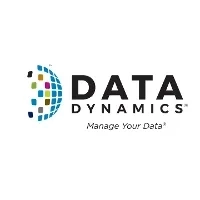Is there anything worse than having a closet full of money, but not being able to find the key? It’s the same story with your unstructured data lying around in your storage!
Recent statistics on data creation are quite intriguing, with a whopping 3.5 quintillion bytes generated daily. It gets even more interesting, as by 2025, IDC forecasts that the total digital data produced worldwide will reach an astounding 163 zettabytes, owing to the proliferation of devices and sensors. However, this exponential growth poses challenges. Around 80 to 90% of the generated data is unstructured, with less than 12% analyzed to provide useful insights. The question is whether it’s worth squandering this much data and keeping it underutilized when it could serve as a vital resource for tackling pressing challenges such as consumer behavior, historical trends, market dynamics, process health checks, efficiency metrices, etc. Enterprises must decide whether to consider this data an asset or a liability when devising their business strategy. It’s worth remembering that like everything else in this world, if left unmonitored, unanalyzed, and inaccessible, data too becomes a wasted liability.
On the other hand, if enterprises can strategically store, structure, and analyze their data, it can become a valuable asset that generates business value. An insight into what data exist and how it can be leveraged presents a huge opportunity with three principal areas: improving consumer experience, cost reduction, and operational efficiency.
- Data-driven organizations are 23 times more likely to acquire customers than their peers.
- A University of Texas study found that increasing data usability by just 10% could increase revenue for the average Fortune 1000 company by over $2 billion.
- 92% of businesses cite business transformation with increased agility — and the ability to operate more competitively — as the driving factor behind investments in data and AI.
Although the numbers may seem impressive and achievable, the task of managing data is far from easy. Historically, organizations have regarded data as a technical parameter, leading to a cultural mindset that data is solely for technologists. This prevented cross-functional teams from leveraging data to gain a competitive advantage. To realize its full potential, a fundamental shift is necessary in how enterprises gather, store, and employ data. This transformation necessitates an alteration of the organization’s DNA, which can be accomplished by educating all stakeholders about the importance of data and ensuring its efficient management. When business units are aligned and shift their cultural mindset towards leveraging data, they can differentiate themselves from their competitors and unlock the full potential of data as a strategic asset. And this is what we call DATA DEMOCRATIZATION.
What is Data Democratization
According to TechTarget, data democratization means making information easily accessible to the average end user. The democratization of data allows people in the enterprise without technical knowledge to understand and analyze data. It involves breaking down silos and barriers to access data, allowing more people within an organization to access, use, and analyze data to make better decisions. By democratizing data, companies can empower employees with valuable insights and knowledge, leading to better collaboration and innovation. This approach can also lead to increased efficiency and productivity, as employees are better equipped to make informed decisions based on data-driven insights.
Why do we need data democratization?
Data Democratization is becoming a necessity today because data is increasingly seen as a critical asset for organizations to remain competitive in the global marketplace. With the vast amounts of data being generated every day, it’s essential to make this information accessible to everyone within an organization, rather than just a select few. By democratizing data, organizations can ensure that everyone has access to the information they need to make informed decisions, regardless of their role or technical expertise. Moreover, Data Democratization is also essential to foster innovation and creativity within organizations. When more people have access to data, they can come up with new ideas and approaches that can improve products, services, and processes. It also helps to build a culture of transparency and trust within an organization, as everyone has access to the same information and can hold each other accountable for the decisions they make. Companies that adopt data democratization will gain a competitive edge and create an outstanding data-driven customer experience.
Considering the advantages of data democratization, it is not surprising that a recent survey conducted by Google Cloud and Harvard Business Review among industry leaders revealed that 97% of those surveyed consider the availability of data and analytics across the organization to be crucial for the success of their business. Nevertheless, only 60% of respondents believe that their companies are effectively providing this access at present. Another survey conducted by Exasol among 500 data professionals and executives found that 90% of participants have made data democratization a priority for their organizations.
While true data democratization is still a distant reality, companies that make efforts toward it and strive to achieve that vision will reap immediate and long-term benefits. Data democratization is the key to unlocking and utilizing organizations’ wealth of unstructured data.
How can companies achieve the data democratization dream? That is the question that businesses should be asking. Here are the three most important elements for building a data democratization ecosystem that empowers businesses with the right data to the right people without bottlenecks.
Data Literacy
To achieve data democratization, the first crucial step is gaining a comprehensive end-to-end understanding of enterprise data, its origins, and its context. However, as per Gartner’s report, approximately 50% of organizations lack the necessary AI and data literacy skills to derive business value from their data.
Data literacy can be achieved by categorizing, classifying, cataloging, and educating employees, which is a fundamental requirement for data analysis. This process involves structuring unstructured data, providing a deep insight into the nature of data that is difficult to read, access, and leverage.
According to Gartner, data literacy is reading, writing, and communicating data in its context. This includes understanding data sources and constructs, analytical methods and techniques, and the ability to describe the use case, application, and resulting value. By achieving data literacy, organizations can facilitate data democratization and unlock the true potential of their unstructured data.
Data Analytics
Data analysis involves more than just extracting insights from vast amounts of data. It encompasses a comprehensive understanding of both the data and metadata. An effective data analysis strategy is intelligence-driven, capable of comprehending the content and context of the data to intelligently identify critical business information and personal data. This aids in deep data analysis and protects sensitive data.
A reliable data analysis tool should identify risks and offer insights to facilitate efficient business operations and generate greater value. Often, data analysis is viewed as the final step in data management, but in reality, it should occur much earlier. Analyzing data before initiating unstructured data migration to the cloud or other storage options can help organizations make better storage, costs, and security decisions.
Data Security
Data security, protection, and governance are crucial components of achieving the data democratization vision. Organizations must comply with data laws that impose penalties for violations. These penalties can amount to millions of dollars, and customers lose trust when their data is compromised.
An effective data analysis process can simplify data security implementation by identifying risks and sensitive data. Once critical data is recognized, it can be protected by either quarantining it or moving it to a more secure location where only authorized personnel can access it. This helps automate authorization management, ensuring that the right people have role-based access to the data, and keeping attackers at bay. Additionally, maintaining immutable audit reports of data actions, such as access, alteration, deletion, or movement, can improve data security efforts.
Data democratization will be a necessity in the future due to the increasing importance of data in decision-making, the need for diverse and representative data in algorithmic decision-making, the potential for increased innovation and creativity, and the promotion of transparency and accountability. However, it requires robust data governance, data literacy, data security, and data quality measures to ensure that decisions are based on accurate, relevant, and timely information.
The value of data democratization has already been realized by businesses with clear and efficient data strategies.

















